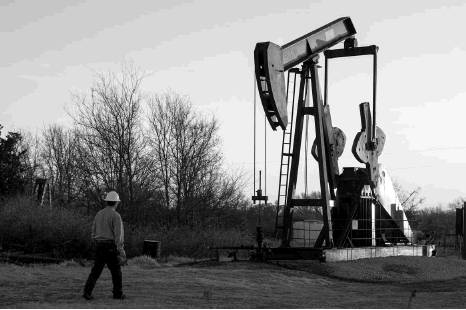ANOTHER VIEW
Methane rules benefit Texans’ safety, wallet
by Hugh Fitzsimons
One of the first things I learned about natural gas was that it is anything but natural when you bring it to the surface. As a rancher, mineral owner and fourth-generation Texan, I am both a beneficiary and a recipient of the unintended consequences of hydrocarbons.
Two years ago, my ranch manager was riding his four-wheeler past one of the natural gas wells on my property and unknowingly passed through a thick plume of invisible but harmful emissions that left him blind for more than an hour, his eyes burning for more than three days. His story is not unique. Oil and gas facilities are silently leaking millions of tons of harmful pollutants into our atmosphere every day.
The U.S. Environmental Protection Agency recently issued new regulations that aim to protect communities by reducing emissions of methane and other pollutants that are exacerbating global warming and polluting our air. Unfortunately, the three elected commissioners of the Railroad Commission (the agency that is supposed to oversee Texas’ oil and gas industry) are asking the Texas attorney general to sue the EPA over these rules — despite the fact that the new rules fit seamlessly into the values contained in the RRC’s mission statement. You would assume the leaders of the oldest regulatory agency in the state would have some degree of expertise when it comes to carrying out the agency’s mission. So let’s go through them and see how they’re doing.
Community safety: When my ranch manager and I asked the well operators about the emissions that caused searing pain and temporary blindness, the companies played dumb. But when we approached the well site with an infrared camera (technology that can visualize normally unseen emissions), the problem was undeniable.
The image on the screen exploded with dark gray billowing plumes of methane and other pollutants that unfurled from the pipes, valves, flare stacks and tank hatches across the property. In addition to methane, there was benzene, taluline, ethylene and xylene — all deadly carcinogens, floating with impunity toward unsuspecting targets. There are no words to describe what it feels like to suddenly see massive amounts of harmful pollution we never knew was there.
The RRC claims concern for personal and community safety, but by suing EPA over these clean air protections, it’s actually putting hardworking Texans in harm’s way.
Stewardship: Oil and gas emissions aren’t only raising pollution levels; they also cause unnecessary waste. Every year, the oil and gas industry allows approximately $2 billion worth of gas to be leaked into the atmosphere rather than put to use. This is exactly why we need more oversight — to prevent this waste and return more revenues to mineral owners and taxpayers. Resisting common-sense policies that can take gas out of the air and put it back in the pipeline is hardly the definition of responsible stewardship.
Economic vitality: Finally, the RRC supports enhanced development and economic vitality for the benefit of Texans. In the last election, the commissioners took in more than $2 million in campaign contributions from the oil and gas industry — the same industry they are charged with regulating. By suing EPA over beneficial, cost-effective methane regulations, it’s hard to see how the commissioners believe in economic vitality for the benefit of all Texans. It does seem clear they support the enhanced economic vitality of the industry and their own campaign coffers.
There are clear climate, health and cost benefits to reducing methane emissions. What is not clear is why the Railroad Commission seems hellbent on standing in the way of policies that can create positive outcomes for Texas’ communities and economy, and which, by its own mission statement, it ought to be supporting.
Hugh Fitzsimons is a rancher in Dimmit County, director of the Wintergarden Water Conservation District and founding board member of Texans for Responsible Energy Development.

